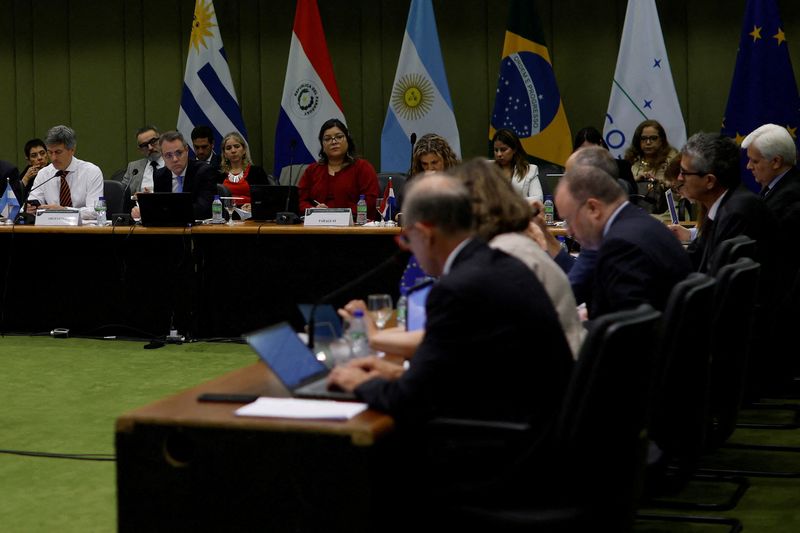
By Lisandra Paraguassu
BRASILIA (Reuters) – The European Union expects to close the trade agreement with South American bloc Mercosur by the end of the year, the EU commissioner for crisis management told Reuters late last week, although noting there were still differences to be solved.
Janez Lenarcic, who is not directly participating in the talks with Mercosur, acknowledged that a new EU law banning the import of products linked to the destruction of the world’s forests has been a sticking point, but said the law will not change – though its implementation is on the verge of being put off for another year.
Mercosur joins Brazil, Argentina, Uruguay, Paraguay and most recently Bolivia in a market that is a sought-after destination for EU manufacturing exporters, though European farmers, especially in France, fear the competition it will bring.
“First of all, the European Union wants this agreement, let me be very clear about that,” Lenarcic said in an interview on Friday in Brazil, where he joined a G20 summit focused on climate disasters.
“There are some open questions,” he said, adding the EU “hopes to be able to find solutions to the remaining issues soon, by the end of this year.”
Lenarcic said he believes the EU’s new deforestation law has affected the negotiations, especially when it comes to Brazil.
The European Commission proposed, and the bloc’s ambassadors agreed last month, to delay implementation of the law by a year until the end of December 2025 after pressure from some member states and major agricultural product exporters such as Brazil.
Lenarcic said the EU has listened to the requests to postpone the law’s implementation, but noted that, in the end, the regulation will not change.

A deal between the EU and Mercosur has been in the works for some 25 years. The parties had announced an agreement in 2019, but it was never formally ratified due to EU demands for commitments on Amazonian deforestation and climate change.
A new online meeting between negotiators of both blocs should happen in the next few days, while a fresh round of face-to-face talks is expected for late November, with hopes of reaching a deal before Mercosur’s meeting in Uruguay in December, according to Brazil’s foreign ministry.
This post is originally published on INVESTING.




